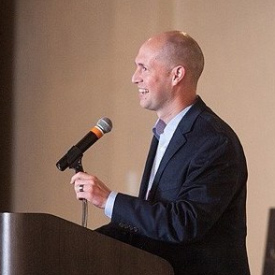Recovering My Love of Teaching (Or “3 Ways to Destroy Teachers”)
A cautionary tale for the beginning of school

Exhausted. There really was no other word for how I felt, and it was only November. Somehow, the dreary February feeling that every teacher dreads had arrived several months early. With twenty-five weekly class periods of teaching and my duties as head of the rhetoric school, bookended by “morning duty” and afternoon meetings, I was exhausted. Like Bilbo, I felt like butter spread over too much bread.
During this time, my concern and love for my students did not wane. Their needs occupied my prayers and thoughts. I enjoyed the pulse and rhythm of the school day – from the grammar school children bounding out of their cars in the morning, to the high school students bounding to their cars in the afternoon. I delighted in camaraderie with fellow teachers and their encouragement and shared struggles helped, along with the usually prescribed remedies of listening to conference talks and reading great books. But, over time, I found that I was putting out far more than I could take in and my love for teaching was growing lukewarm.
During my last year in these particular circumstances, while teaching The Aeneid, I found the plight of Queen Dido particularly consuming. The object of her affection became the cause of her destruction. Aeneas, her love, left her. Granted, the connection is hyperbolic, but I felt I understood the queen. My love for teaching seemed to be leaving me, and I found myself asking if it was time to put it on the pyre.
I have encountered too many teachers in similar circumstances to think my story is unique. In schools all over the country, there are teachers who are running on fumes. How does this happen? How do dedicated teachers who love both the act of teaching and their students find themselves regularly overwhelmed and even ready to quit? Is it merely “part of the job”, something to be expected with teaching? Perhaps. Even in the best of schools, with reasonable demands, teachers get tired and frustrated. But, in what I have observed as both a teacher and headmaster, schools make some common mistakes that unintentionally exacerbate the problem.
Underestimate the Demands of Teaching
Teachers must maintain consistent order, attention, interest, participation in their classroom, as well as mastery of content, simultaneously. The mental, emotional, and spiritual exhaustion that stems from such service should not be underestimated. Teaching is not for the faint of heart and the work is difficult. I once had a retired teacher tell me that, at the end of a school day, he felt like he had been trampled by bulls and, by the end of February, he wished he had been.
School leaders – whether board members or headmasters without much classroom experience – can fail to recognize the great energy consumed in teaching. They see a six or seven hour work day, but miss the level of exertion required during that time. Just as we would not stand at the finish line of a marathon saying, “You’ve only been working for three or four hours,” so we should not think of a teacher’s work merely in terms of time.
Headmasters, cutting out unnecessary paperwork, keeping faculty meetings short, and finding ways to reduce extra duties for teachers will go a long way in encouraging them and keeping up energy.
Try to Do Too Much
It is no secret that many classical schools are under-staffed and under-resourced. There is never enough money or manpower to go around. Teachers feel this more acutely than anyone, as they normally subsidize school programs with their low salaries; that is, money goes to a new gym, uniforms, etc. rather than to the already underpaid teachers, and most teachers never utter a complaint about it.
But, schools often compound the matter when they compensate for understaffing by requiring their few teachers to simply do more. What’s one more class? What’s another weekly meeting? What’s five minutes off the lunch period? A lot. It all adds up and, over time, leads to teacher burnout and exhaustion.
St. John Chrysostom said that Golden Rule is the definition of virtue. Headmasters and boards need to remember this when making decisions that affect their teachers.
Don’t Train Them
Pharaoh required the Hebrews to make bricks without straw. Schools require teachers to serve without ongoing training. One was done as punishment, the other as “sound fiscal policy,” but the two actions parallel. Because teachers spend their days giving of themselves to students and parents, they must be allowed to take in, refuel, and recharge.
Training takes on particular importance for classical schools because so few of us ever received classical instruction. All teachers want to do a good job and classical school teachers often feel a sense of insecurity about whether they are “teaching classically.” Schools must allow them opportunities for training and learning so they can grow in the craft of teaching and gain confidence, both of which are necessary for teacher retention and contentment. What’s more, it is necessary if schools are to treat their teachers virtuously.
Maybe Tennyson was right. Perhaps “’Tis better to have loved and lost than never to have loved at all.” But, to those exhausted teachers out there, my hope is that you will not only keep your love of the classroom, but that it would grow with each passing year.

Brian Phillips
Dr. Brian Phillips serves as a pastor in Concord, NC, where he lives with his wife and their four children.










